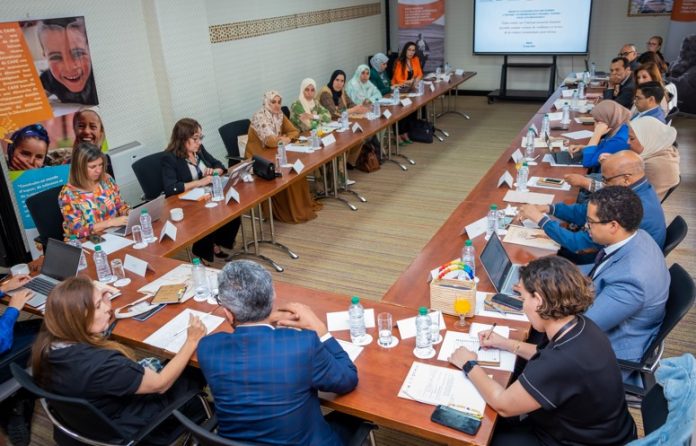In collaboration with the Ministry of Tourism, Handicrafts, and Social and Solidarity Economy, CARE Maroc, supported by Global Affairs Canada and the French Development Agency, organized a pivotal roundtable discussion titled “Sustainable Female Entrepreneurship as a Vector of Resilience and Lever for Economic Recovery Post-Earthquake.” This event brought together key stakeholders from various sectors to highlight the crucial role of women’s entrepreneurship in the context of post-earthquake reconstruction.
The roundtable had several objectives, including examining the key factors contributing to the resilience of Village Savings and Credit Associations (AVEC) in emergency situations. It provided an opportunity to analyze the specific challenges and opportunities related to promoting sustainable female entrepreneurship after the earthquake. Additionally, the discussion aimed to define actions and strategies to strengthen and promote sustainable female entrepreneurship within the framework of economic recovery and foster the exchange and sharing of successful experiences in sustainable female entrepreneurship in post-disaster contexts.
The project “Empowering Women through Sustainable Entrepreneurship / Women for the Environment” aims to overcome the barriers faced by women in their quest for economic autonomy while combating gender stereotypes. In partnership with local actors, CARE Maroc has supported the creation and accompaniment of Village Savings and Credit Associations (AVEC), enabling low-income rural women in the Marrakech-Safi region to develop sustainable income-generating activities, primarily in the textile and agriculture sectors.
The earthquake of September 8, 2023, which devastated the Al Haouz region, severely disrupted these initiatives, destroying production means and sources of livelihood for many communities. However, the AVEC structures demonstrated remarkable resilience, facilitating not only the resumption of economic activities but also the organization of emergency aid.
The event served as a fruitful platform for exchange among participants, sharing insights and successful practices, and listening to female leaders who recounted their journeys within the AVEC framework. They highlighted the impact on their lives and communities and shared their experiences during the earthquake, which ultimately contributed to strengthening their resilience.




